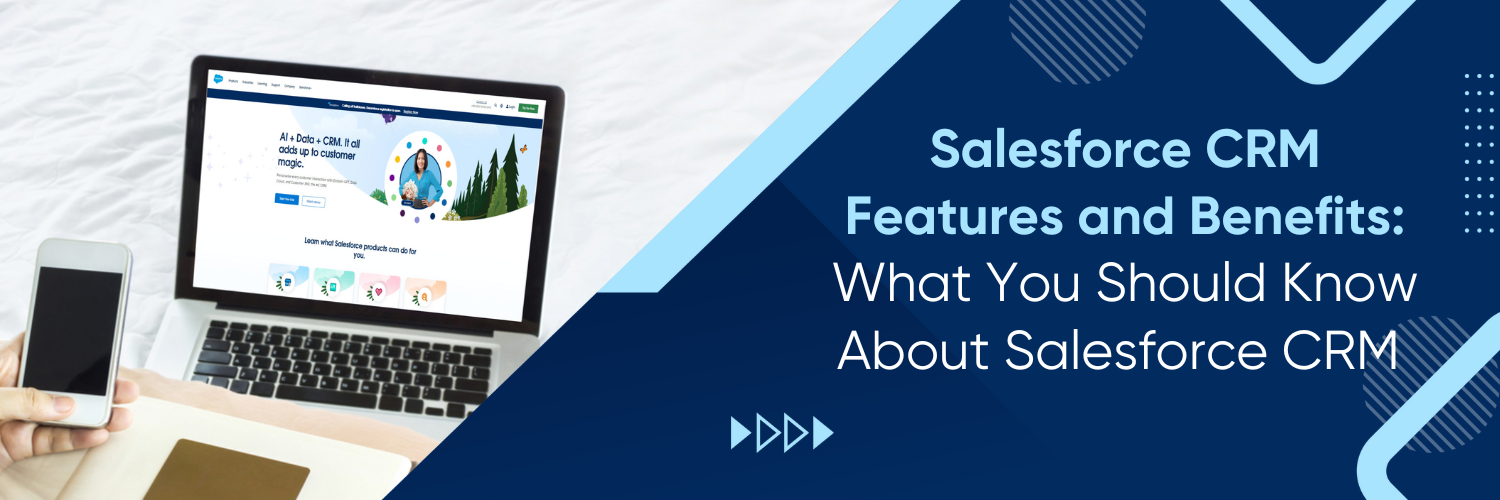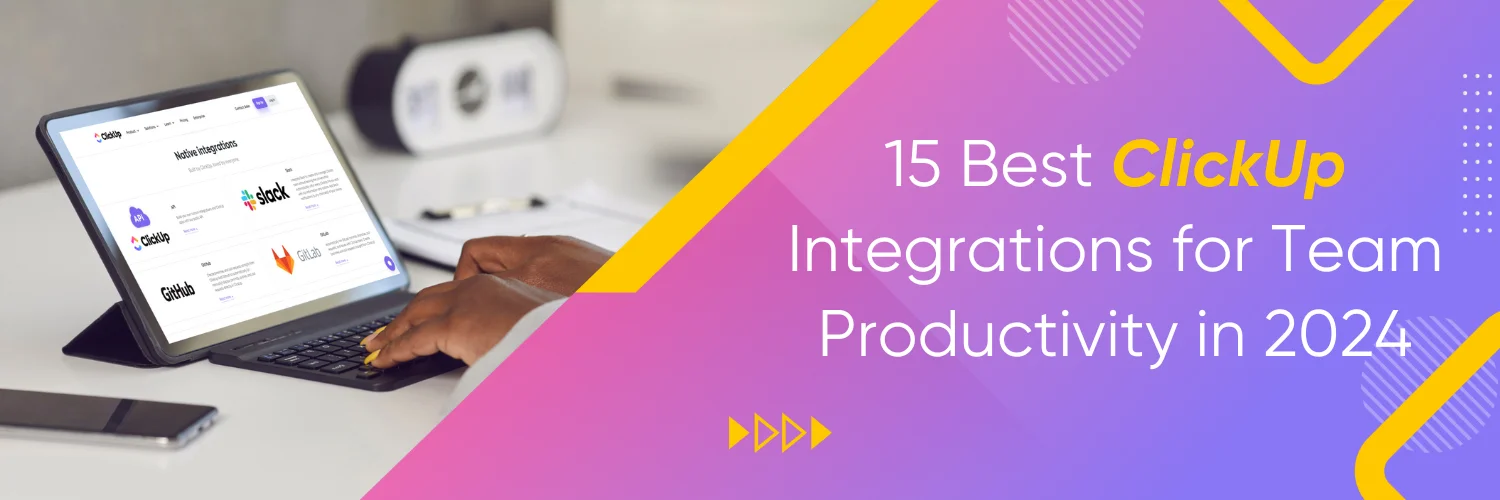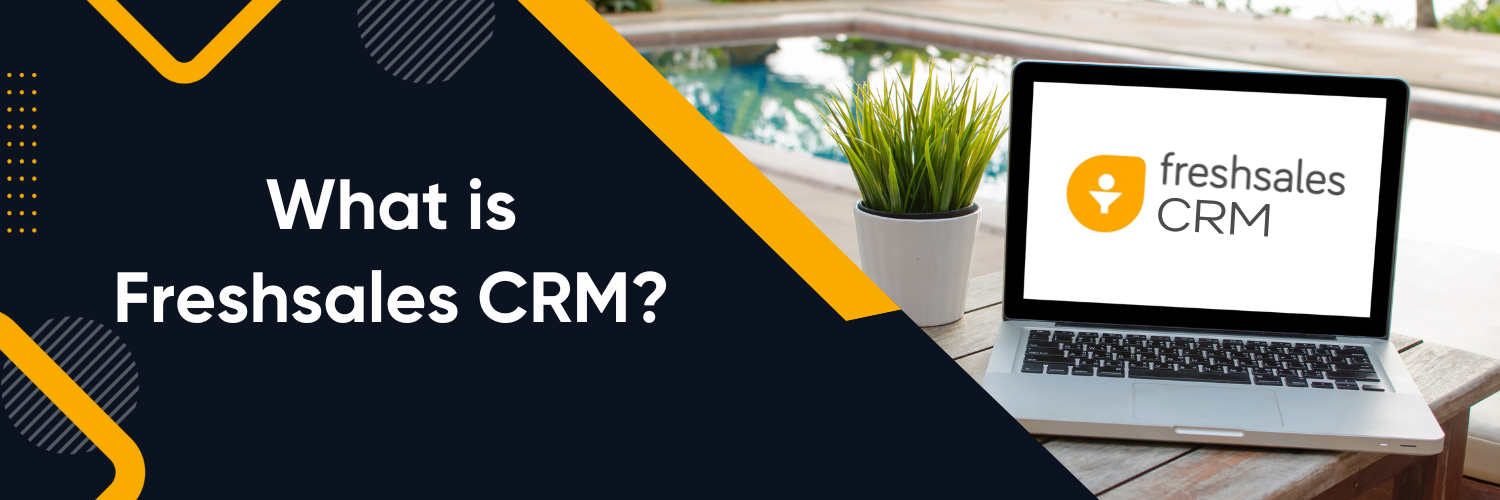The world of customer relationship management (CRM) is constantly changing, with new software helping businesses manage their contacts and relationships better. Salesforce CRM is a top choice, offering powerful features that help businesses of all sizes understand their customers better.
What is Salesforce CRM?
Salesforce CRM is a cloud-based customer relationship management platform that helps businesses enhance customer service, gain insights into customer data and behaviors, and boost sales growth. It offers a unified platform for customer service, marketing, sales, and analytics, allowing businesses to track customer interactions and activities to deliver personalized experiences.
Salesforce CRM includes a variety of features designed to provide valuable insights and improve business decisions. These features range from automated processes to real-time analytics, enabling users to access the necessary data to engage customers and nurture relationships effectively. Additionally, Salesforce offers extensive customization options, allowing users to tailor the software to their specific needs and preferences.
Related article: How to Use Salesforce: The Complete Guide To CRM
Benefits of using Salesforce CRM
Salesforce CRM offers numerous benefits for businesses looking to optimize their customer relationship management. Here are some key advantages:
Enhanced Customer Insights
Salesforce provides a comprehensive view of customer data, enabling businesses to understand customer behaviors and preferences better. This helps in delivering personalized experiences and improving customer satisfaction.
Improved Sales Performance
With features like sales forecasting, lead management, and opportunity tracking, Salesforce helps sales teams streamline their processes, close deals faster, and increase revenue.
Efficient Marketing Campaigns
Salesforce’s marketing automation tools allow businesses to create targeted campaigns, track their performance, and adjust strategies in real time. This leads to more effective marketing efforts and higher ROI.
Superior Customer Service
Salesforce’s customer service tools enable businesses to manage customer inquiries and issues efficiently. Features like case management, knowledge base, and support automation help in resolving problems quickly and improving customer loyalty.
Scalability and Customization
Salesforce is highly customizable and scalable, making it suitable for businesses of all sizes. Users can tailor the platform to their specific needs, ensuring it grows with their business.
Integration Capabilities
Salesforce easily integrates with various third-party applications and services, allowing businesses to create a unified system that enhances productivity and data accuracy.
Real-Time Analytics and Reporting
Salesforce provides powerful analytics and reporting tools, giving businesses real-time insights into their performance. This helps in making informed decisions and driving strategic initiatives.
Mobile Accessibility
With the Salesforce mobile app, businesses can access their CRM data anytime, anywhere, ensuring they stay connected and responsive even on the go.
Features of Salesforce
Create Targeted Marketing Campaigns
Salesforce offers a range of powerful features that enable businesses to create targeted marketing campaigns. Companies can segment their customer database based on criteria like demographics, purchase history, and behavior patterns. This segmentation allows businesses to tailor their marketing messages to specific groups, ensuring the right message reaches the right audience at the right time.
Salesforce also provides robust email marketing capabilities, allowing users to design and automate personalized email campaigns with customized templates, personalized content, and automated follow-up sequences. Furthermore, Salesforce integrates with various marketing automation tools, streamlining marketing efforts and tracking campaign performance efficiently.
Automate Email Marketing
Salesforce provides a suite of features and tools that enable businesses to automate email marketing campaigns effectively:
- Email Templates: Salesforce offers customizable email templates that businesses can use to create professional-looking emails. These templates can include dynamic content personalized for each recipient, such as their name or details from their interactions with the company.
- Email Personalization: Businesses can leverage customer data stored in Salesforce CRM, like purchase history and browsing behavior, to personalize email content. This ensures that emails are relevant and targeted to different customer segments.
- Email Campaigns: Using Salesforce Marketing Cloud or Pardot, users can set up and automate email campaigns. They can define triggers and conditions to send emails automatically, such as welcome emails for new subscribers or follow-up emails after specific actions.
- Drip Campaigns: Salesforce enables the creation of drip campaigns, which send a series of pre-designed emails at predetermined intervals. These campaigns can nurture leads, onboard new customers, or engage existing ones over time.
- Automated Workflows: With Salesforce’s workflow automation, businesses can define rules and actions to automate email marketing processes. For example, automated emails can be sent when leads reach a certain score, when a purchase is made, or when a subscription is about to expire.
- A/B Testing: Salesforce supports A/B testing for email campaigns. Businesses can test different versions of an email to determine the most effective one based on metrics like open rates and click-through rates.
- Analytics and Reporting: Salesforce provides robust analytics and reporting tools to track email campaign performance. Users can monitor key metrics such as open rates, click-through rates, conversion rates, and revenue generated, allowing for data-driven optimization of email marketing efforts.
Create Personalized Messages
Salesforce enables businesses to create highly personalized messages using its robust customer data management and marketing tools:
Customer Data Management: Store and manage customer data, including contact info, purchase history, and preferences, to create tailored messages.
Segmentation and Targeting: Segment customers based on criteria like demographics or behavior to deliver relevant messages and increase engagement.
Email Marketing Automation: Design personalized email templates and automate campaigns using triggers and customer interactions, with dynamic content insertion.
Dynamic Content: Customize content blocks within emails or web pages based on customer attributes or preferences, enhancing user experience.
Journey Builder: Create automated customer journeys across multiple touchpoints, delivering personalized messages at the right stages.
Third-Party Integration: Integrate with external systems to leverage additional data for advanced personalization and more tailored messages.
Create Lead-generation forms
Salesforce provides a convenient and effective way to create lead-generation forms, allowing businesses to capture valuable information from potential customers. With Salesforce’s lead-generation forms, businesses can easily collect and track prospect data, enabling them to nurture leads and drive conversions.
Monitor Performance Metrics
Salesforce offers tools to track and analyze key metrics across sales, customer service, marketing, and more. Customizable dashboards and reports allow users to monitor performance in real time. Businesses can set up alerts for specific metrics, helping them quickly identify and address issues or opportunities.
- Opportunity Tracking: Salesforce allows businesses to track potential deals, including details like deal size, closing probability, and expected close dates. This helps analyze trends in deal velocity, win rates, and average deal size.
- Sales Pipeline Management: Salesforce provides a visual representation of the sales pipeline, showing opportunities at different stages. This helps identify bottlenecks, areas for improvement, and trends in conversion rates.
- Analyze Customer Behavior: Salesforce captures data from various touchpoints, such as website visits and social media interactions, to analyze customer behavior. This data provides insights into customer preferences, popular products, and effective marketing strategies.
- Analytics and Reporting: Salesforce’s analytics tools allow businesses to create customized reports and dashboards. These tools help visualize data, uncover trends, and make data-driven decisions to improve customer experience and optimize sales and marketing strategies.
Integrations and Customizations
One of the key strengths of Salesforce is its flexibility and ability to integrate with a wide range of third-party applications and systems. Salesforce provides a robust set of APIs and integration tools that allow businesses to connect Salesforce with other software platforms, such as ERP systems, marketing automation tools, e-commerce platforms, and more.
The ability to integrate with external systems enables businesses to streamline their processes and share data seamlessly across different departments. For example, integrating Salesforce with a marketing automation tool can automate lead nurturing and ensure a smooth handoff between marketing and sales teams.
Integrate with Third-Party Apps
Salesforce provides robust integration capabilities that allow businesses to seamlessly connect with a wide range of third-party applications. This integration capability is one of the key strengths of Salesforce, enabling businesses to streamline their processes, improve efficiency, and leverage the full potential of their ecosystem.
Salesforce offers a variety of integration options to accommodate different business needs:
- AppExchange: Salesforce’s AppExchange is a marketplace where businesses can discover and install pre-built applications and integrations that extend the functionality of the Salesforce platform. The AppExchange offers a wide range of apps across various categories, such as marketing automation, finance, customer service, and more. These apps can be easily integrated with Salesforce, providing additional features and functionalities.
- APIs and Connectors: Salesforce provides a set of robust APIs (Application Programming Interfaces) that allow businesses to build custom integrations and connect with external systems. The APIs enable seamless data exchange and interaction between Salesforce and other applications, enabling businesses to create custom workflows and automate processes. Additionally, Salesforce offers pre-built connectors for popular applications like Microsoft Office, Google Suite, and social media platforms, simplifying the integration process.
- Middleware and Integration Platforms: Salesforce also integrates well with middleware and integration platforms such as MuleSoft (which is owned by Salesforce), Jitterbit, and Boomi. These platforms provide a unified approach to connecting Salesforce with multiple applications and systems, allowing businesses to orchestrate complex integrations and data flows.
Customize Reports and Dashboards
- Report Customization: Salesforce offers a wide range of customization options for reports. Users can select the desired data fields to include in the report, apply filters to focus on specific subsets of data, and group data by various criteria. Additionally, users can define sorting and summary options to organize and summarize data effectively. With Salesforce’s drag-and-drop interface, it is easy to rearrange and format report components to create a visually appealing layout.
- Dashboard Customization: Salesforce dashboards allow users to create visual representations of their data by combining multiple reports, charts, and metrics on a single screen. Users can customize dashboards by selecting the most relevant reports, choosing the appropriate chart types (such as bar charts, pie charts, or line charts), and arranging components to highlight key metrics. Furthermore, users can apply filters to dashboards to dynamically update the displayed data based on specific criteria.
- Conditional Formatting: Salesforce enables users to apply conditional formatting to reports and dashboards. This feature allows for the dynamic styling of data based on specific conditions. For example, users can highlight cells or chart elements based on certain thresholds, such as highlighting sales figures in red if they fall below a target value. Conditional formatting helps in quickly identifying trends, outliers, and areas that require attention.
Automating Workflows
With Salesforce’s workflow automation tools, organizations can automate repetitive tasks, eliminate manual data entry, and ensure consistent and timely actions across different departments.
One of the key features for automating workflows in Salesforce is the Workflow Rules. These rules allow businesses to define specific criteria and trigger automated actions based on those criteria. For example, a workflow rule can be set up to automatically assign a lead to a sales representative when it meets certain conditions, such as a specific lead score or industry.
Security and Reliability
High-Level Security Protocols
Salesforce has implemented high-level security protocols to ensure the protection and confidentiality of customer data. These security protocols include:
- Data Encryption: Salesforce employs robust encryption techniques to safeguard data both at rest and in transit. This ensures that sensitive information remains encrypted and is not accessible to unauthorized individuals.
- Multi-Factor Authentication (MFA): Salesforce supports MFA, requiring users to provide additional verification factors, such as a unique code or biometric authentication, in addition to their login credentials. This adds an extra layer of security to prevent unauthorized access to user accounts.
- Role-Based Access Control (RBAC): Salesforce utilizes RBAC to manage access privileges. Administrators can assign roles and permissions to users based on their specific job responsibilities, ensuring that individuals only have access to the data and functionalities required for their roles.
- Regular Security Audits: Salesforce conducts regular security audits and assessments to identify and address potential vulnerabilities. These audits help ensure that the platform’s security measures are up to date and aligned with industry best practices.
- Compliance with Data Protection Regulations: Salesforce complies with various data protection regulations, such as the General Data Protection Regulation (GDPR) and the Health Insurance Portability and Accountability Act (HIPAA). This ensures that customer data is handled in accordance with the applicable legal requirements and provides businesses with peace of mind regarding data privacy and security.
- Physical Security: Salesforce maintains highly secure data centers that adhere to strict physical security protocols. These measures include 24/7 monitoring, access controls, and redundant systems to protect against physical threats and ensure data availability.
- Security Incident Response: Salesforce has a dedicated security incident response team that promptly investigates and addresses any security incidents or breaches. This enables quick mitigation of potential risks and ensures a swift response to protect customer data.
Reliable Data Storage
Salesforce provides reliable data storage solutions that ensure the integrity and accessibility of critical business information. As a cloud-based CRM platform, Salesforce offers robust and secure data storage capabilities that meet the needs of businesses of all sizes. Here are some key features that make Salesforce a reliable data storage solution:
- Scalability: Salesforce’s data storage is highly scalable, allowing businesses to store and manage large volumes of data without worrying about capacity constraints. Whether a business has thousands or millions of records, Salesforce can accommodate the growth and scale seamlessly.
- Data Redundancy: Salesforce employs data redundancy practices to ensure the availability and reliability of stored data. Multiple copies of data are stored in geographically distributed data centers, minimizing the risk of data loss due to hardware failures or natural disasters. This redundancy provides businesses with peace of mind knowing that their data is protected and accessible at all times.
System Backups
Salesforce ensures your data is protected and available with robust backup capabilities. The platform performs regular, automated backups stored in multiple locations to safeguard against data loss and system failures. Backups are frequent to minimize any risk of data loss.
How can a Digital Marketing Agency help you grow your business?
Choosing and implementing a CRM can be challenging, from selecting the right platform to setting it up and getting your team on board. Ubique Digital Solutions can help by offering expert advice on CRM selection, customization, and integration. They make sure the CRM fits your business needs, improving customer relationships, sales, and marketing. Book for a free consultation today.
FAQs
Q: Is Salesforce CRM suitable for small businesses?
Yes, Salesforce CRM is suitable for businesses of all sizes, including small businesses. It offers scalable solutions that can be adapted to the needs and budgets of small businesses, providing them with tools to manage their customer relationships and sales processes effectively.
Q: Does Salesforce CRM integrate with other applications?
Yes, Salesforce CRM offers a wide range of integration capabilities. It can integrate with various third-party applications, such as email clients, marketing automation tools, e-commerce platforms, and productivity software, to streamline workflows and data sharing.
Q: Is Salesforce CRM secure?
Yes, Salesforce CRM has robust security measures in place to protect customer data. It provides features like user authentication, data encryption, access controls, and regular security updates to ensure data confidentiality and integrity.
Q: Can Salesforce CRM be accessed on mobile devices?
Yes, Salesforce CRM has mobile applications available for iOS and Android devices. This allows users to access and manage their CRM data, collaborate with team members, and stay connected with customers while on the go.
Q: Does Salesforce CRM provide analytics and reporting capabilities?
Yes, Salesforce CRM offers powerful analytics and reporting tools. It allows users to generate customized reports, track key performance metrics, visualize data through charts and dashboards, and gain insights to make data-driven decisions.















